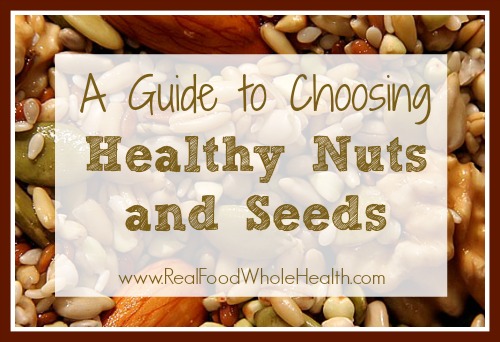
A Guide to Choosing Healthy Nuts & Seeds
- Nuts & seeds are a great snack- easy to keep on hand, portable and a good source of protein, fat and micronutrients. However, take it easy, you really don’t need more than a handful a day.
- Most seeds and nuts contain polyunsaturated fats, namely Omega 6 fats. Our modern diet is generally very high in Omega 6 fats and low in healthy Omega 3 fats, causing an imbalance. While nuts and seeds provide some healthful fats (and add variety to fat consumption), keeping quantities in check will benefit overall health and a healthy weight.
- Nuts also contain antinutrients, including phytic acid, and should be soaked overnight in salted water in a mason jar with a sprouting screen and then dried in a dehydrator at 115 degrees or less, or in an oven at the lowest possible temperature, until dry and crispy. Cashews should only soak about 6 hours, macadamia nuts do not contain phytic acid and do not need to be soaked.
- If you are in a bind, and do not have soaked/dried nuts available, dry roasted (no oil) nuts (preferably unsalted, as commercially available nuts will contain processed table salt) The same applies to seeds like pumpkin and sunflower.
- Store nuts/seeds in the refrigerator or freezer to keep them at their freshest, and grind only before using to avoid rancidity.
- Buy raw seeds and nuts, organic and locally grown if possible. Buying nuts in the bulk bin area of a store with a good turnover rate is a good way to save money, keep your supply fresh and avoid unnecessary packaging.


Comments are closed.